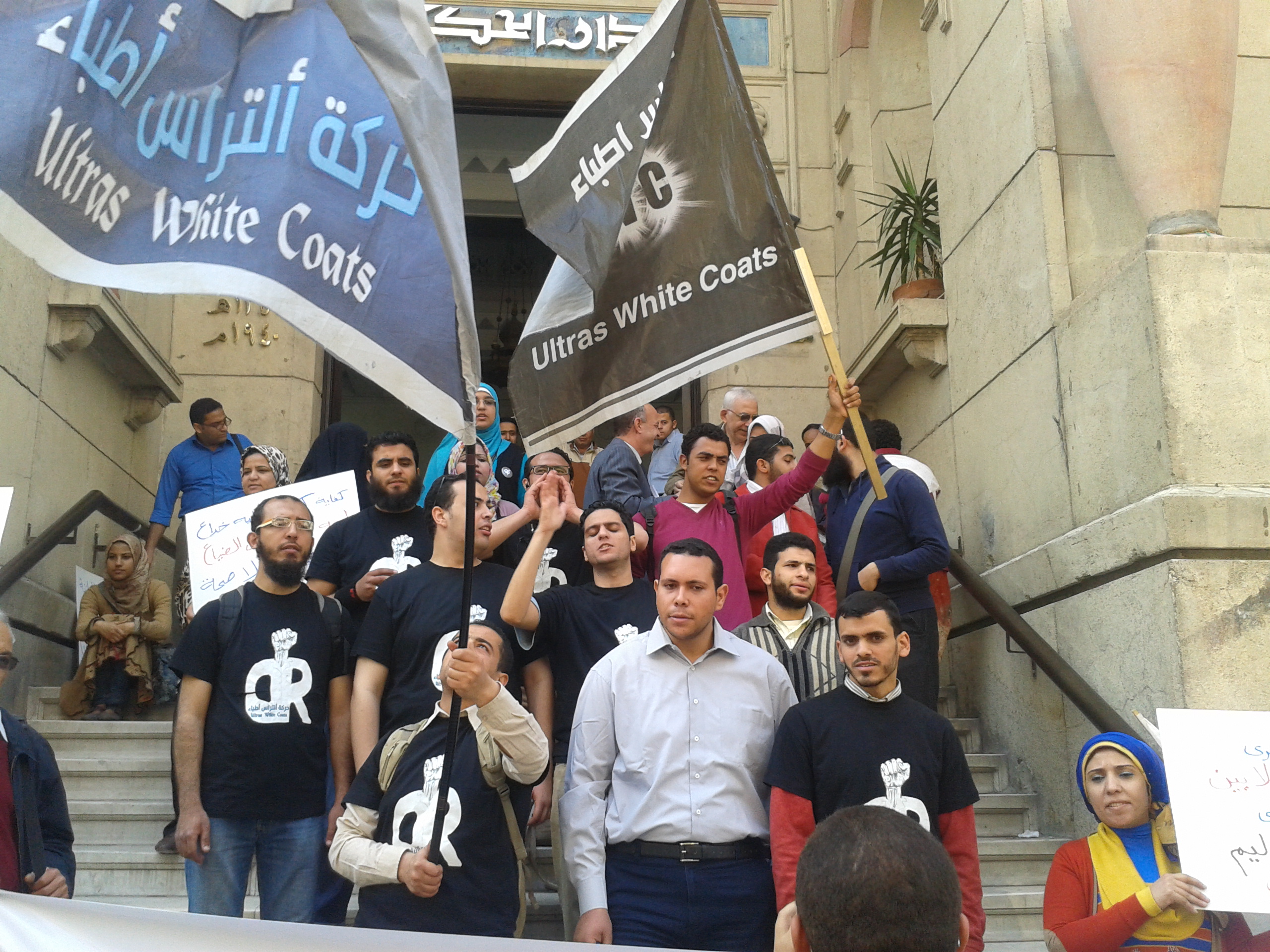CAIRO: Al-Dostour’s journalists are facing yet another criminal trial for alleged publishing offenses committed in an article which appeared in the independent daily last year.
The trial of Al-Dostour chief editor Ibrahim Eissa and writers Mostafa Bassiouni and Mohamed Abul Dahab began Wednesday, and was adjourned until March 25 when documents will be presented into evidence.
The charges have been brought forward by Fouad Abdel Alim Hassan, general representative of the Ghazl El-Mahalla spinning factory, who alleges that false information was published by Bassiouni and Abul Dahab in the article at the center of the case.
The Ghazl El-Mahalla factory has long been a hotbed of industrial action.
A strike which collapsed on April 6, 2008 in part because of security intimidation was one of the factors which contributed to the breaking out of a two-day uprising in the Delta town against rising food prices.
Two Ghazl El-Mahalla labor leaders, Tareq Amin and Gehad Taman, are being tried on charges of libeling Hassan in the article which appeared on Oct. 28, 2008 – two days before more than 800 Ghazl El-Mahalla workers protested company losses which they allege have been deliberately caused as part of a plan to privatize the factory.
Entitled “Labor leaders: Next Thursday is a new day for Mahalla workers the disputed article quotes a union official, Said El-Gohary, as saying that mismanagement portends the factory’s privatization.
El-Gohary goes on to allege that company losses amount to LE 144 million.
The article also makes reference to a statement published by the League of Ghazl El-Mahalla Workers which states that “workers thought the days of [former board head] Mahmoud El-Gabaly were the worst – but it’s become clear that no-one is like Fouad Hassan who intends to finish off the factory.
The quoted statement goes on to say that Hassan has stopped work in the majority of the company s departments and that he is pursuing a policy designed to drown the company in debts ahead of its sell-off.
Taman is quoted as saying that the protest held on Oct. 1 is a “warning from factory workers and that the stoppage of over 1,600 machines in the factory constitutes waste of national industry and gambles with workers futures.
Amin alleges that company management attempted to stop the Oct. 1 protest from taking place, and that Hassan met with some 400 workers on the Monday before the protest in an attempt to convince them not to go ahead with it.
Hassan is alleged to have told the workers that he has been offered several positions with other companies for a higher salary, to which the workers are said to have responded with, “well why don t you accept the offers and leave?
Amin is also quoted as saying that the workers questions and demands “forced Hassan to leave without answering them.
Abul Dahab told Daily News Egypt that the charges against him are “an attempt by Hassan to contain his failure in the management of the company.
Abul Dahab pointed to the “arbitrary decisions taken by Hassan to transfer workers from Mahalla, to company offices in Alexandria and Cairo.
Five workers were transferred after the October protest.
“While this is the first time that Hassan has targeted journalists, Ghazl El-Mahalla workers who speak to the press have frequently been subject to internal disciplinary action by the company – this even includes one labor leader who stated in an article that he was against a protest organized in the factory, Abul Dahab said.
Abul Dahab says that he will not be intimidated by the charges against him.
“They can bring a million cases – we ll continue to write about the truth of Ghazl El-Mahalla.


